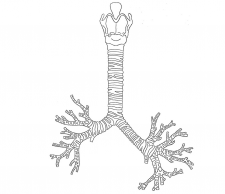Fatal experiments: a maverick surgeon strikes back
By Nell Frizzell,
The Guardian
| 10. 25. 2016
“If I had the choice between a transplant of a synthetic trachea and the firing squad I’d choose the last option because this is the least painful form of execution,” says Professor Pierre Delaere.
At times, the language in Fatal Experiments: the Downfall of a Supersurgeon is far from clinical. The documentary, which sparked controversy in Sweden earlier this year and which airs on the BBC this week, slices open the somewhat murky story of Paolo Macchiarini – a brilliant surgeon accused of falsifying scientific results and being investigated over potential charges akin to manslaughter, after attempts to implant plastic windpipes failed and patients died.
In the documentary, we watch archive footage of Macchiarini operate on a young Russian woman with a non-fatal condition; we see him pose for photos alongside apparently “saved” patients; we watch him take phone calls on the beach, holding his shoes; we hear from the families of patients who have died; we hear from the doctors who complained about his methods; we read the disputed extracts from his research papers and, finally, we watch...
Related Articles
By Diaa Hadid and Shweta Desai, NPR | 01.29.2026
MUMBRA, India — The afternoon sun shines on the woman in a commuter-town café, highlighting her almond-shaped eyes and pale skin, a look often sought after by couples who need an egg to have a baby.
"I have good eggs,"...
By Shobita Parthasarathya, Science | 01.22.2026
These are extraordinarily challenging times for university researchers across the United States. After decades of government largess based on the idea that a large and well-financed research ecosystem will produce social and economic progress, there have been huge cuts in...
Group of Tuskegee Experiment test subjects
Public Domain via Wikimedia Commons
Every generation needs to learn about what is commonly known as the Tuskegee syphilis study, which ran from 1932 to 1972. (Officially, it was the U.S. Public Health Service Syphilis Study at Tuskegee, Alabama, which gets the emphasis right.) For many people, the history is hard to believe, though it is hardly unique. Of the 600 subjects, all Black men, 399 had syphilis, for which...
By Evelina Johansson Wilén, Jacobin | 01.18.2026
In her book The Argonauts, Maggie Nelson describes pregnancy as an experience marked by a peculiar duality. On the one hand, it is deeply transformative, bodily alien, sometimes almost incomprehensible to the person undergoing it. On the other hand...




